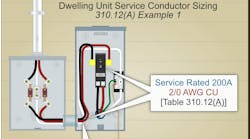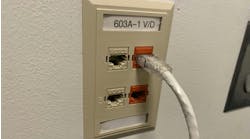You were excited to take this new job, because it offered new experience and more opportunity for advancement than your previous job. In fact, you last worked as a Master Electrician but were hired on as an Electrical Supervisor. You have four Master Electricians, each with his own crew, working directly under you. So you're already on the advancement path. Then there's the downside. One of the crew wears a T-shirt that says, “Real Electricians Work It Hot” and another routinely “forgets” his PPE.
You discussed the shirt with its owner, expressing the inappropriateness of the message it sends. During the discussion, you found he routinely avoids lockout/tagout to save time. Saving time was the same “reason” given by the other one for “forgetting” his PPE. You also found your Master Electricians don't hold job briefings. When asked why, the answer was again the time savings — all of this in your first two days.
“Now,” you think, “this is why Bob hired me. To fix this very problem.” Your thoughts drift to the interview, where you and Bob (your new boss) really hit it off. You talked about all sorts of issues, but he never brought up safety. As you head toward Bob's office, you figure that now you and Bob would be discussing that issue. You began by telling Bob that you wanted to know what his expectations were as far as how you would address the safety problems and what exactly the process would be for disciplining those who didn't get on board.
For a long moment, Bob sat there just looking at you. Then he said the company was in business to make money, nobody had been seriously injured since he'd been hired, and there wasn't going to be any change in safety practices. He concluded by saying he hired you to make sure work gets done efficiently, and that can't happen if people are loaded down with all sorts of “extra” safety rules.
You didn't know what to say, so you told Bob, “Maybe we can talk about this later. Let me think on it for a couple of days.” Then you walked out of his office. So now what do you do? Do you stay and try to change the safety culture, perhaps over time? Or do you leave and hope you can find another job within a reasonable time?
It's unlikely you can change that safety culture (such that it is). Some day, something tragic will happen, and it might be a wake-up call. But since they've gotten by with luck so far, they are going to use luck as an excuse to gamble.
If you suddenly resign, that could be good or it could be bad. It could be good if you discuss this with another prospective employer who sees you got out of a bad situation right away. It could be bad because it means bringing up negatives to a prospective employer. But it could be really bad if you stick around and the luck runs out, so you are just going to have to resign. Before you do that, contact your previous employer and discuss this problem. If you left them on good terms, they may agree to either hire you back or help you find a job with another firm.
In the future, make a point of seeing the people you will be working with. If possible, see them in their natural work environment — and be sure to address safety during the interviewing process. Not in general terms, such as “Do you value safety” (always answered yes), but with specifics such as, “Can I sit in on a job briefing?” or “Can you tell me about your electrical work permit process?”




